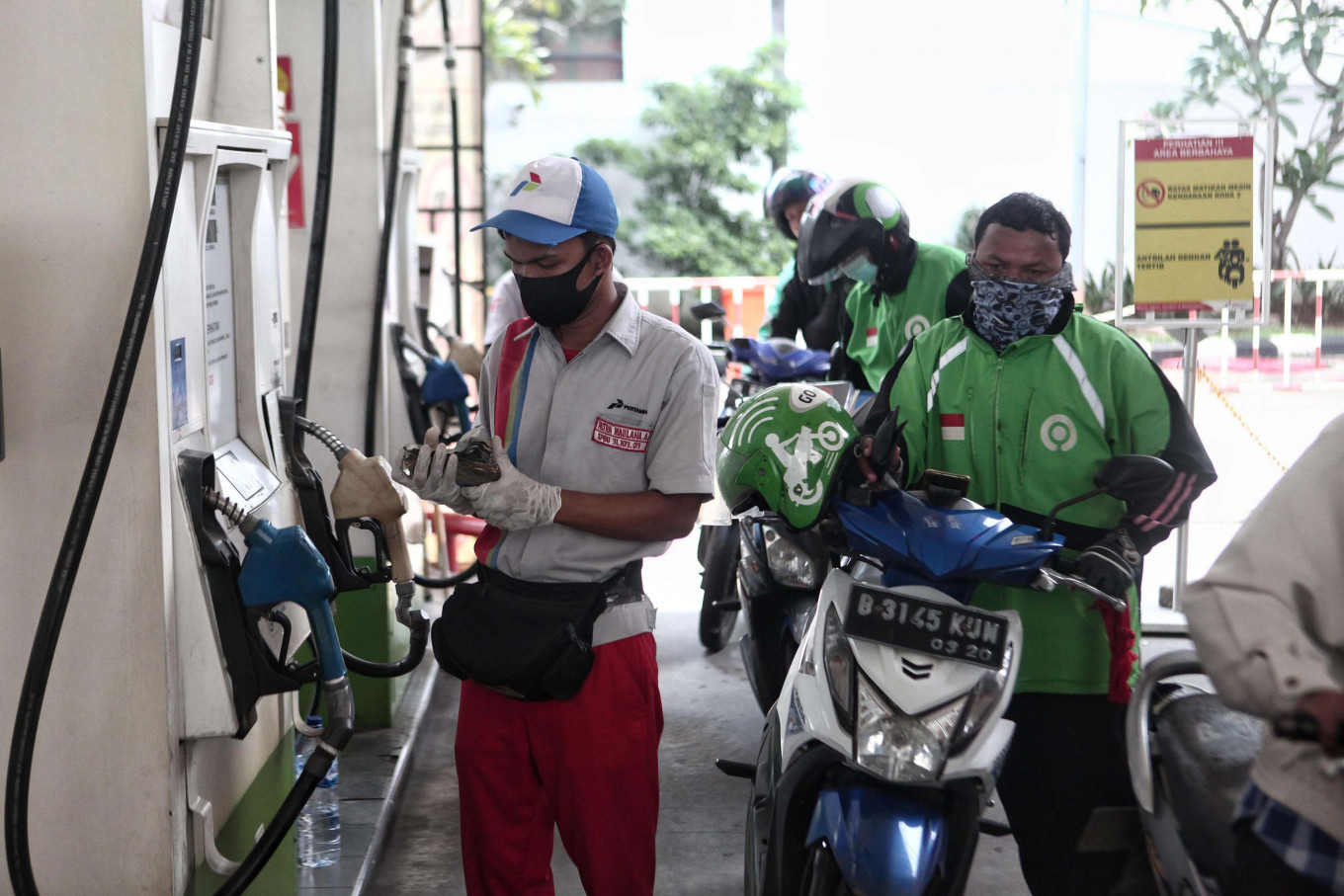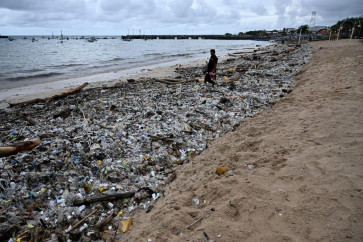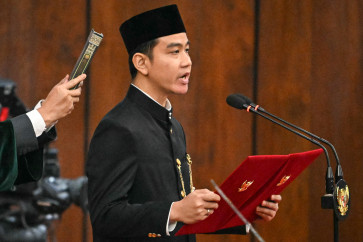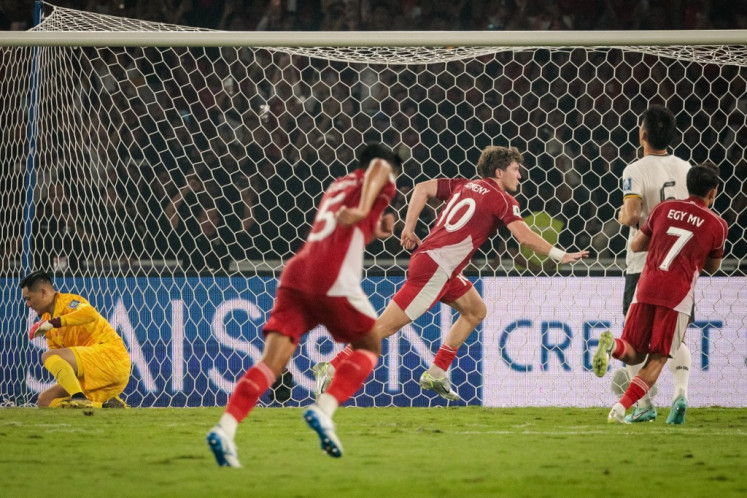BPH Migas sets lower quota of subsidized fuel
Subsidized fuels is a prickly issue for the Indonesian government. The dirty commodity costs trillions of rupiah in state spending and swells carbon dioxide and air pollution levels, especially in big cities.
Change text size
Gift Premium Articles
to Anyone

T
he Downstream Oil and Gas Regulatory Agency (BPH Migas) has set the subsidized fuel quota at 26.3 million kiloliters for next year, down 2.1 percent from this year, as Indonesia continues differing its clean fuel commitments.
BPH Migas set the quota at 15.8 million kiloliters of subsidized diesel (branded Solar), 10 million kl of subsidized gasoline (branded Premium) and 500,000 kl of kerosene, a common cooking fuel in rural Indonesia. Most of the fuels will be distributed by state-owned Pertamina while the remainder by privately-owned PT AKR Corporindo.
The gasoline and kerosene quota are, respectively, 9.1 percent and 10.8 percent lower than this year but the diesel quota is 3.3 percent higher – the only quota to be raised.
“In 2019, there was a [Solar] over quota so, for 2021, the quota was raised to meet consumer demand,” said BPH Migas head of fuel distribution I Ketut Gede Aryawan to The Jakarta Post on Wednesday.
Subsidized fuels is a prickly issue for the Indonesian government. The dirty commodity costs trillions of rupiah in state spending and swells carbon dioxide and air pollution levels, especially in big cities.
But at the same time, subsidized fuels also reduce the financial burden for many of Indonesia’s poorest homes, for whom transportation fuel takes up the third-largest chunk of their spending behind food and housing, according to Statistics Indonesia (BPS).
BPH data shows that subsidized diesel consumption last year exceeded the annual quota by 111.5 percent to 16.2 million kl. BPH Migas head Fanshurullah Asa attributed the over quota to “irregularities” in the mining and plantation industries’ consumption levels.
Ketut said BPH Migas had been discussing the 2021 quota since earlier this year and was thus unable to know the realized 2020 consumption levels.
The Environment and Forestry Ministry tried to eradicate the dirty fuel by tightening vehicle emission limits through regulation No. 20/2017. But the rest of the government has focused on limiting distribution instead through Presidential Regulation (Perpres) No. 191/2014. A case of regulatory flip flop.
BPH Migas oil director Alfon Simanjuntak told the Post separately that Pertamina had requested reducing the subsidized gasoline quota for next year following the launch of the company’s Blue Sky program.
Under the program, Pertamina discounts the price of its Pertalite brand gasoline, the second- dirtiest option behind Premium, in certain areas.
“Any changes means going through another committee hearing,” said Alfon, referring to the panel of officials and private sector players that determine the annual subsidized fuel quota.
The program is Pertamina’s compromise to not end the sale of Premium fuel by 2018 as required by the environment ministry’s regulation. The company’s Pertamax Turbo brand, its priciest offering, is the only regulation-compliant brand, emissions wise. The clean fuel meets the international benchmark Euro 4 standard.
Pertamina’s fuel distribution subsidiary, PT Pertamina Patra Niaga, expects to reduce Premium sales by 42 percent to 13,800 kl per day on average by 2024, claiming that this would be achieved through its marketing strategies.
“Pushing [gasoline] prices to Rp 10,000 will feel heavy,” said Patra Niaga chief executive Mas'ud Khamid to lawmakers in Jakarta on Oct. 5, referring to Pertamax Turbo prices.
The environment ministry’s regulation also requires ending Solar sales by 2021. However, the ministry’s air pollution control director, Dasrul Chaniago, said on Dec. 11 that the deadline would be pushed back by a year.
“Due to the COVID-19 pandemic that struck the world and Indonesia, preparations to implement Euro 4 for diesel vehicles will be delayed until April 2022,” he said as reported by tempo.co.









